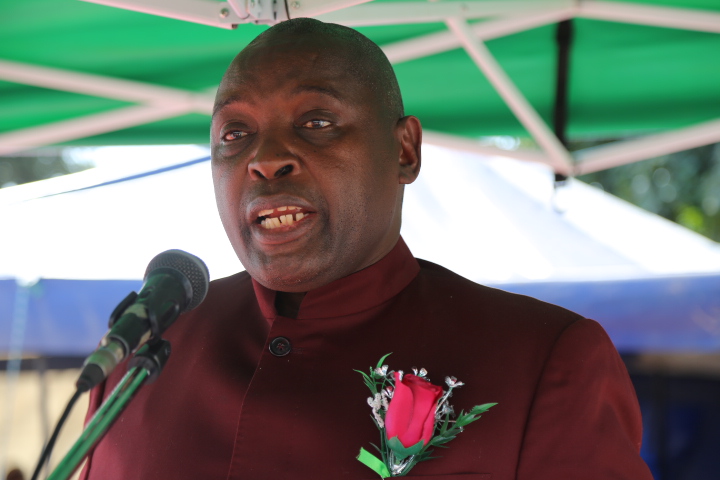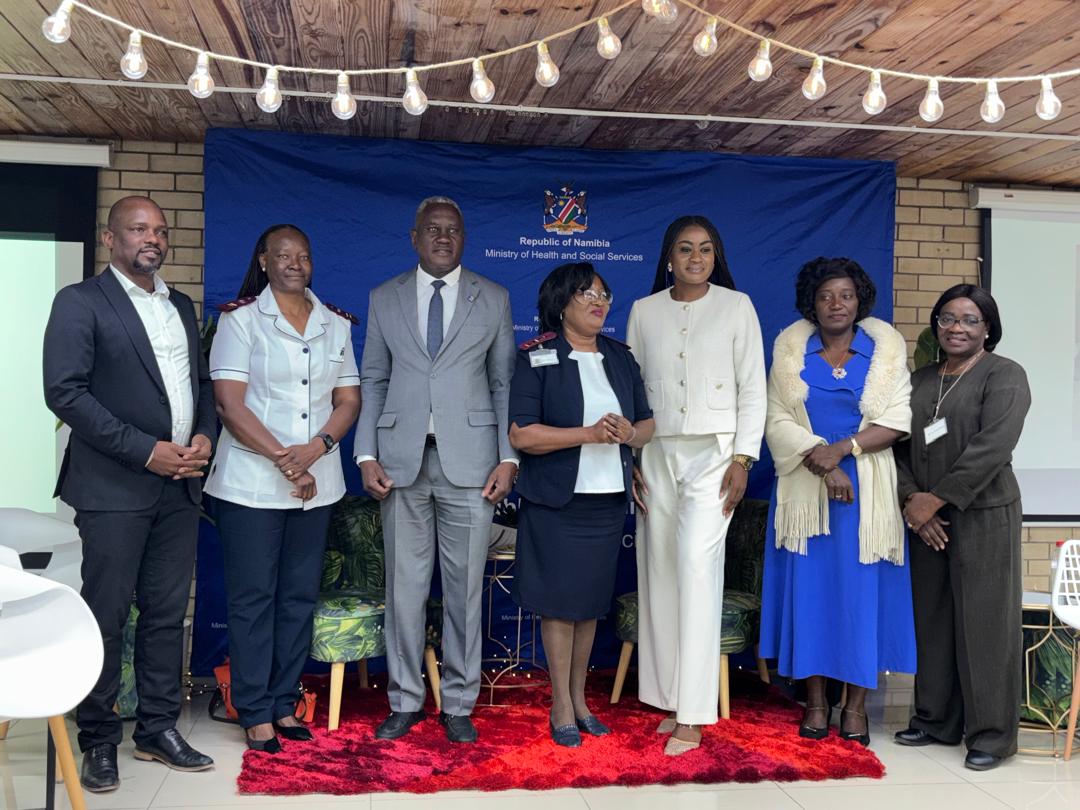SWANU would like to put the record straight by correcting what we consider as a misleading position taken by Gwen Lister in her Editorial Perspective of Friday, 15 May 2009 in which she compared Swanu’s position on the Nyae-Nyae invasion vis-Ã -vis Struggle Kids demands and some imagined future demands by descendants of Koevoet soldiers.
We wish to state boldly, loudly and clearly that as first successors to the Great Patriotic Wars of the 1904 against the German imperialism and Portuguese invaders in the northern part of our country, since our inception we have amongst other things committed ourselves to advocating and championing the cause of the descendants of the genocide victims to the bitter end. We shall neither shy away nor renege on that historic responsibility. We wish to state that we have never been, and we shall never adopt a position that borders on political chameleonism or dishonesty in our national affairs.
We state our position as always and at all times guided by the interest of our people and as always based on our political principles. Our position on the War (Liberation) Veterans was succinctly put to Minister Dr Tjiriange during our meeting with him in March 2008 as follows: ‘Recognition must be given to the fact that participation in the liberation struggle was a voluntary consideration and not a national imposition that must necessarily be rewarded.
However, given the insecurity and suffering the process of liberation struggle has inflicted on members of liberation struggle, in the interest of resettlement and integration, we as a Party welcome the effort and intention of the Namibian Government to assist those who are still vulnerable through this Veterans Act’. It is our contention and understanding that the assistance is geared towards those who physically participated in the liberation struggle and through them the assistance would reach their dependents. However, for the Struggle children who do not have parents and or guardians because they lost them in the struggle, it is justified to tread them as special cases. We cannot just write them off and say they are not a special case. That would be inhuman.
Evidently the aggravating circumstances in which our citizens are residing in Gam, make them clearly a special case. We don’t need academic binoculars to realise that our citizens in Gam and Eiseb Block have been eking out a peripheral existence. For example they have been struggling with citizenship including obtaining IDs since they arrived in this country. The basic infrastructures such as schools, clinics, roads and agricultural extension services have been a nightmare as they are non-existent and or inadequate.
More so, the resettlement space is not conducive to their farming requirement and needs considering the hostile environment to domestic animals which are their mainstay.
Indeed most Gam and Eiseb Block residents are sons and daughters of the never-to-be forgotten victims of Von Trotha’s Extermination Order. It is an open secret that the German government because of its intransigence has dragged its feet to such extent that no compensation has been paid out in respect of Reparation Demands. Unlike their counterparts (veterans inclusive their dependants) who have been integrated into the system through different government schemes (Development Brigade, SIPES etc) and who would continue to be cared for through the new Veteran Act, Gam residents have been dumped in that part of our country without the necessary support.
Ms Gwen Lister you are comparing groups which are different from each other. The case of the future Koevoet kids you made references to, has no relevance or connection to the special case being made for the descendants of the victims of Genocide.
Let’s hope that you have erred in your judgement by comparing these two groups and you are not actually indirectly advancing a case against Genocide Reparation Demand. Swanu’s media release must be understood and appreciated against the constitutional, statutory and ministerial policy provisions. The Constitution empowers our government to address past injustices through Affirmative Action and the Ministry policy on resettlement endeavours to assist those who were disadvantaged by colonial Apartheid system.
The other eligibility criteria Swanu advanced that makes many uncomfortable are displaced and dispossessed. Advancement of this position is not a complete departure from the general principle of Affirmative Action but is merely to say that disadvantaged group is too generic and is open to misuse and abuse. It is a matter of fact that Namibians of African origins were disadvantaged as a group but some were dispossessed of their land and properties and also displacement through forced exile by the genocide operations. In terms of consideration, they must be given preference over the generic disadvantaged group. Our adherence to democratic centralism as an organisational principle is not only confined to issues within the Party, but we are also cognizant of the fact that Affirmative Action as a principle accepted in Namibia must be the basis upon which the discussion on preferential treatment or entitlement is centred. It was agreed and we are bound by it. Last but not least, Swanu wish to state in unambiguous and undiluted terms that we did not issue a message in favour of the Nyae-Nyae Invasion but rather highlighted other mitigating factors that are stimulants if the land issue continues unresolved. The criteria for consideration were brought as a matter of necessity and should be on the agenda of government reflection.
Of course for Swanu the most important issue to be tackled once in power is the resolution of the land issue.
This so because addressing the land question brings with it many positive spin-offs such as reduction in unemployment, hunger, destitution, internal conflicts, and enhances standards of living.
Give the Land and Wealth back to the People!
Karupumbura Veii
Political Advisor to the President
SWANU of Namibia
Stay informed with The Namibian – your source for credible journalism. Get in-depth reporting and opinions for
only N$85 a month. Invest in journalism, invest in democracy –
Subscribe Now!










